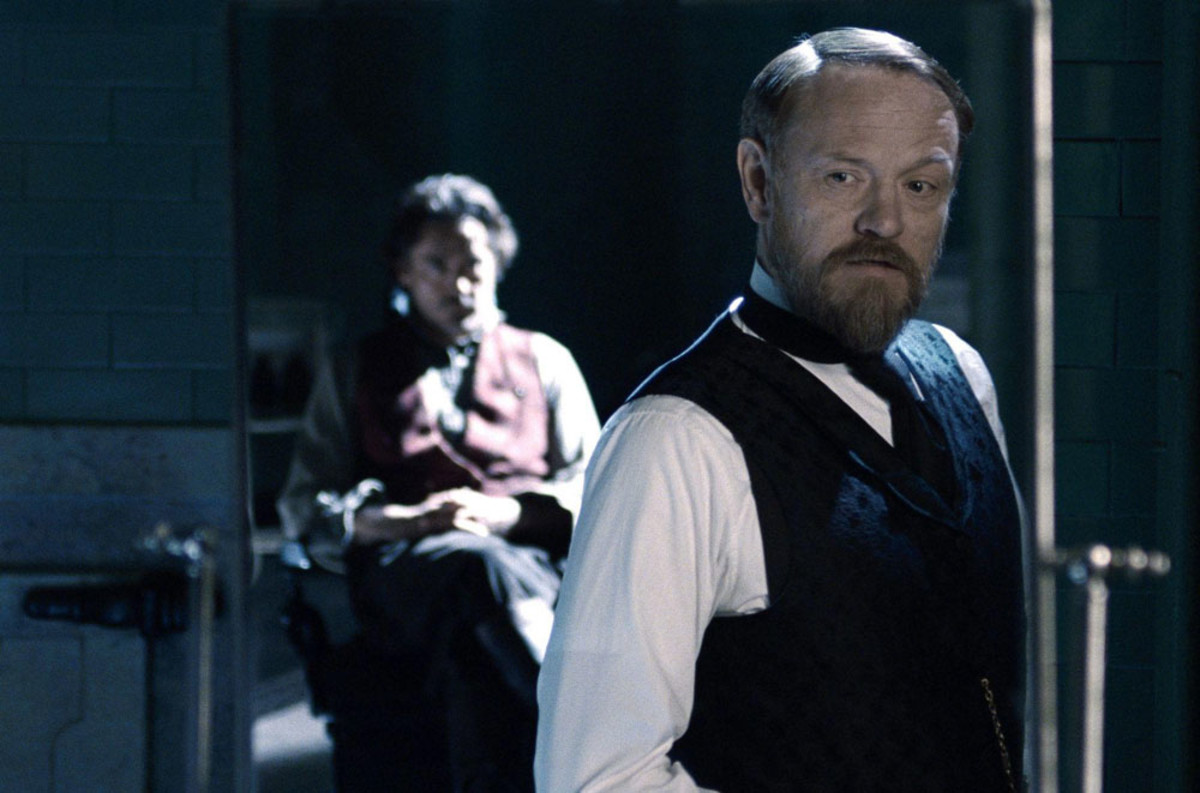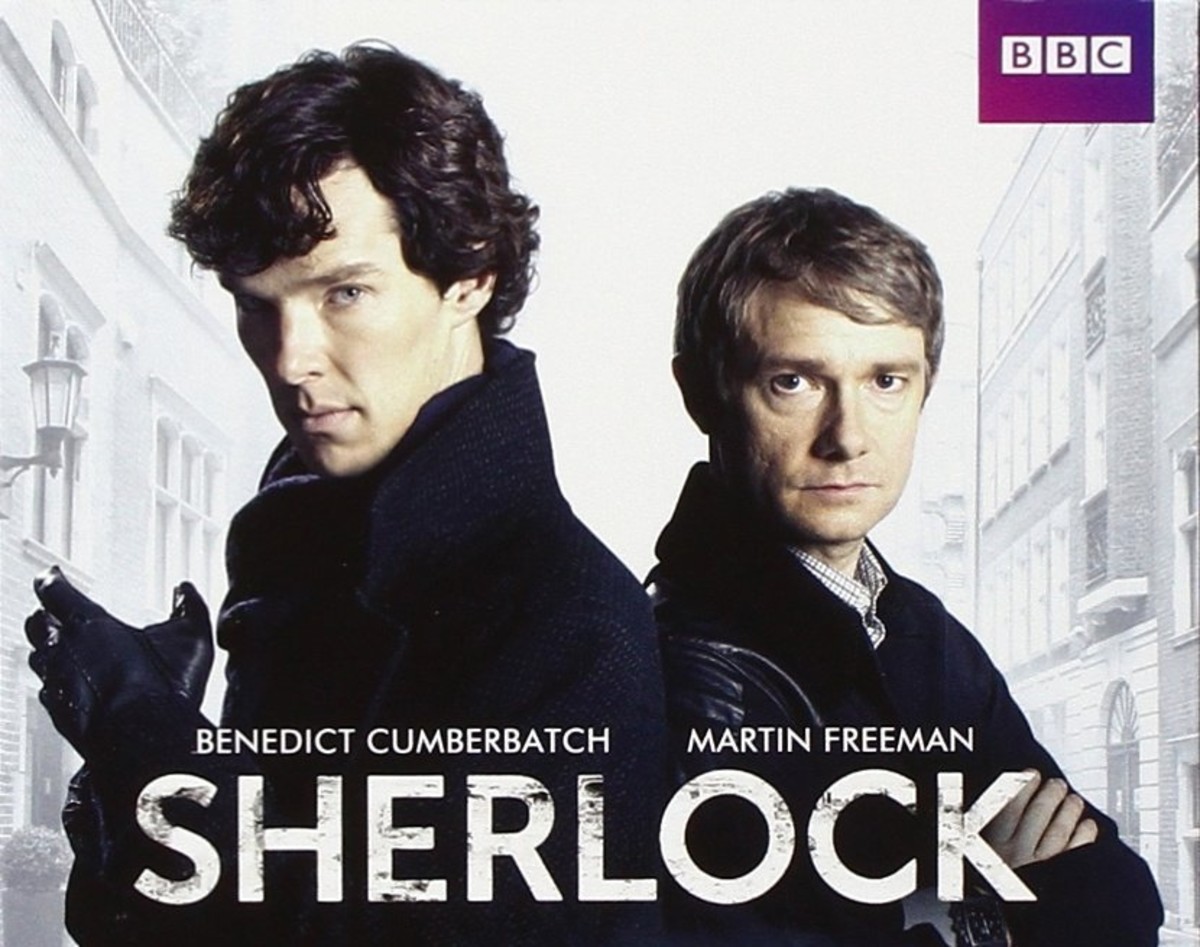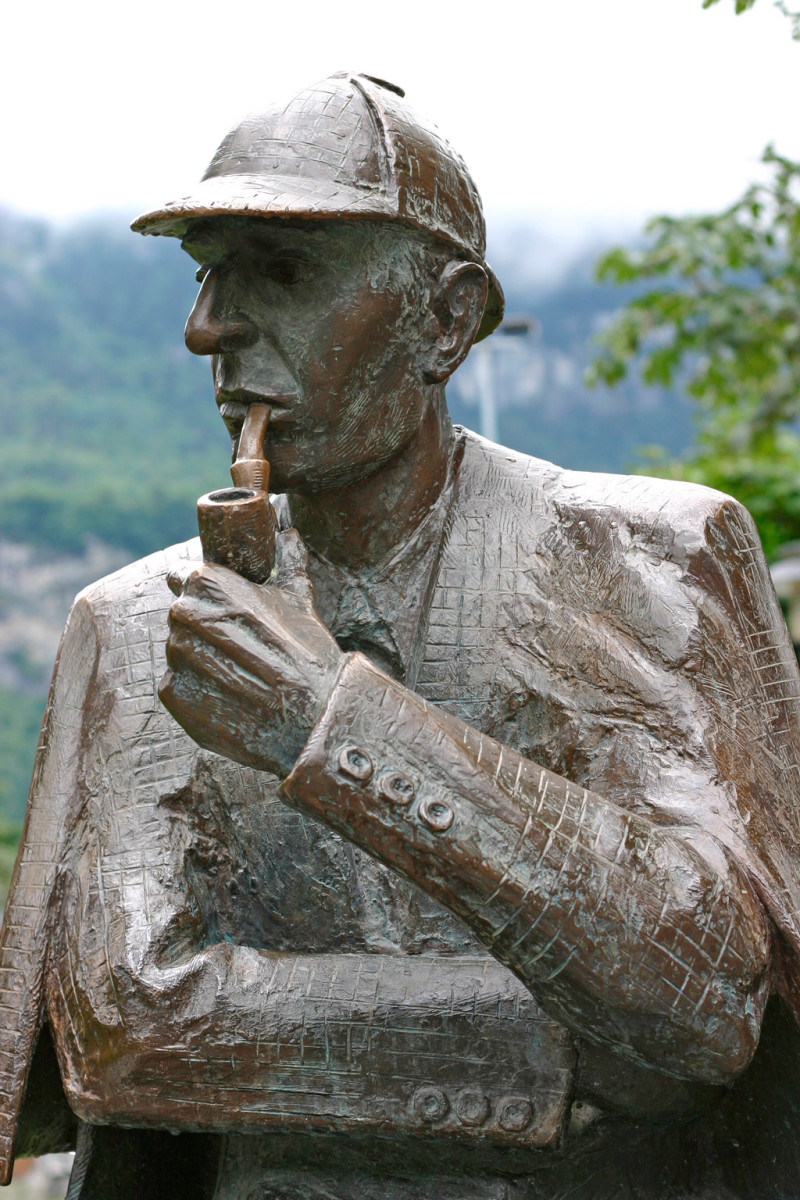Sherlock: The Great Game (Review)
'Sherlock' Returns to Form
"The Great Game" more than atones for Sherlock's previous outing, the mediocre "The Blind Banker". This episode (written by Mark Gatiss and directed by Paul McGuigan, like "A Study in Pink") is a welcome return to form, with what already feels like the show's trademark blend of humour and fast-paced crime solving.
The story begins in a Belarus jail. Sherlock's (Benedict Cumberbatch) potential client, a young Englishman accused of murder, quickly annoys the detective with his egregiously poor English. (We already know Sherlock is a pedant. Is anyone surprised that he is also somewhat of a grammar nazi?) Sherlock doesn't take the case, which is altogether too ordinary for him--and more importantly, the young man is guilty.
Back in London, Sherlock's behaviour shows why he'd even consider such a prosaic case. Sherlock is bored; his caseload is nil. An innocuous chat with John (Martin Freeman) turns into a spat over John's blog. In typical Sherlockian fashion, he finally snaps, "Stop inflicting your opinions on the world," yet seems bewildered when John leaves the flat in a huff.
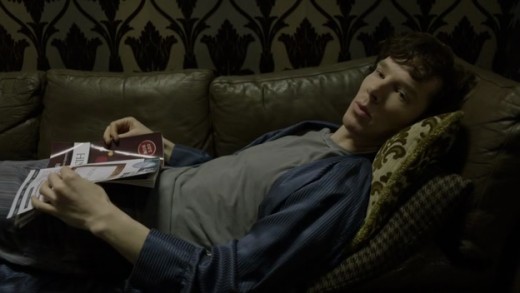
Bombs and Puzzles Aplenty
Sherlock's boredom doesn't last. The flat is blown up and brother Mycroft (Mark Gatiss) asks for assistance in retrieving the missing top-secret Bruce-Partington missile plans. However, Sherlock is uninterested in the case, and eventually delegates the request to John.
We learn that the explosion is the work of a bomber whose crimes are a direct challenge to Sherlock--the bomb on Baker Street was simply his calling card. Sherlock soon recognises a sinister connection with the Study in Pink: Moriarty, who sponsored the criminal in that case, is behind the bombings. Moriarty's challenge is that Sherlock must solve five crimes within a given span of time, or else a hostage dies. It's worth noting that Sherlock plays the "game" set up by his invisible opponent, the attentive viewer may recognise Moriarty well before the third act. (I did not. But in retrospect it seemed obvious!)
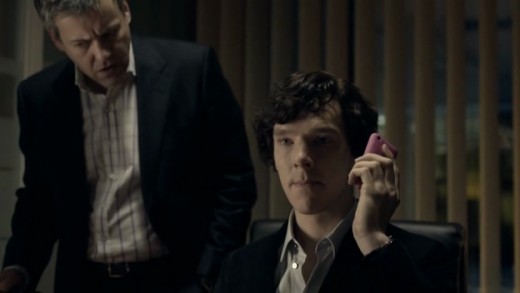
The Curtain Rises
Halfway through "A Study in Pink", John was accosted by a man who described himself as Sherlock's "arch-enemy". Until his identity was revealed at the end, probably many viewers familiar with the Sherlock Holmes canon assumed he was Moriarty, who's often depicted onscreen as a posh, academic-looking middle-aged man. In "The Great Game", Sherlock again plays with our expectations--this time, by casting against type. Moriarty is portrayed to campy excess by an outre Andrew Scott. Although I appreciate that Sherlock is often about defying certain Sherlock Holmes conventions--indeed, it's one of the best qualities of the show--Moriarty is too over-the-top for my liking.
Sherlock says near the start of the episode that it's good that he uses his
energies and skills to work for the law, rather than against it (it's a theme often repeated in several of Conan Doyle's stories). Yet one need look no further than Moriarty himself to see what a criminal Sherlock might have been. With undisguised admiration, Sherlock deems Moriarty's puzzles "brilliant" and "gorgeous"; despite their criminal nature, they stimulate and intrigue him. Moriarty tells Sherlock that they are "made for each other", and even
John, in a moment of anger, says sarcastically that they'd "be very
happy together". Indeed, it's fitting that Moriarty's taunts are usually couched in flirtatious language, for he and Sherlock share an intellectual affinity which unfortunately carries the potential for great danger.
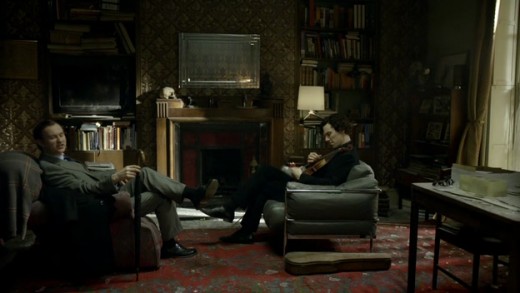
Baker Street Irregulars and Regulars
From modern-day Baker Street Irregulars--Sherlock gets information from his network of London's homeless informants--to hospital technician Molly (Louise Brealey), Sherlock doesn't want for interesting and memorable supporting characters. In "The Great Game", however, Mycroft stands out amongst supporting players. The brothers' relationship is considerably more frosty than in the books, and I hope that future episodes will elaborate on the reasons. Another revelation is that Mycroft's observational skills and reasoning are superior to his brother's: Sherlock asks John how he found girlfriend Sarah's lilo (air mattress), but Mycroft correctly observes that John had used the sofa.
Mrs. Hudson (Una Stubbs) and Lestrade (Rupert Graves) also deserve mentions. Stubbs has limited time on the screen, and she always makes the most of it. She imbues Mrs. Hudson with more life and humour than Conan Doyle's vision of a frumpy housekeeper. As Lestrade, Graves is not unlike a growly bulldog, whose patience with Sherlock is always tested to the brink. He deplores Sherlock's tendency to keep his deductions secret until the last possible moment, while "some poor bastard's covered in Semtex waiting for [him] to solve
[the puzzle]". It should be interesting to see how they continue to clash over over their contradictory methods.
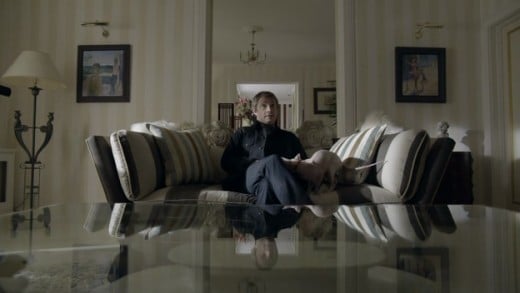
Bromance is in the Air
Though Sherlock's interest in crimes seems grotesque to most people, at least his flatmate and friend is usually more forgiving of this peculiarity. Still, as more hostages are taken and Sherlock remains detached as ever, John is appalled by the detective's unemotional approach: "There are human lives at stake...Do you care about them at all?" Although Sherlock knows that he has disappointed his friend, he refuses to treat the cases as anything more than intellectual game: "Don't make people into heroes, John. Heroes don't exist--and if they did, I wouldn't be one of them."
Despite their frequent disagreements, Sherlock and John share a strong and tacit trust that plays an important part at the end of the episode. In fact, their relationship is a bromance, a theme that is not new in the oeuvre of Sherlock Holmes stories and adaptations. What makes Sherlock unique is its cheeky way of addressing bromantic issues; in "The Great Game", poor John is still defending his heterosexuality when others assume that he and Sherlock are more than friends. Yet the running gag isn't tiring, and serves only to highlight the uniqueness of Sherlock and John's relationship.
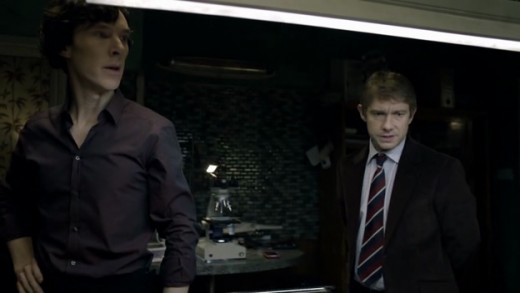
Possibilities for the Second Series of 'Sherlock'
Although producers were unsure if the BBC would order a second series, Sherlock ends on a cliffhanger that, without giving too much away, echoes "The Final Problem". Now that Sherlock is returning for a second series, Moriarty's presence throughout the three episodes seems premature, and the arc too short. Here's hoping that he'll return in later episodes, within longer, more fleshed-out storylines.
Some other things that would be fascinating to see in future episodes of Sherlock:
- Insight into the Holmes brothers' relationship/family life, especially with reference to their mother (hinted at in "A Study in Pink").
- A modern equivalent of the Diogenes Club.
- Sherlock in a clever disguise. With today's technologies, he can avail himself of silicone masks, latex prostheses, wigs, and so on for effective disguises. He does pretend to be someone else in "The Great Game", but the costume is not as elaborate as the ones in the stories (in which Holmes always manages to fool even Watson). Some examples of his disguises: elderly bookseller, old woman, gruff sailor, old opium addict.
- Irene Adler.
- More backstory regarding Sherlock's education. In "The Blind Banker" a university mate asks for his help. Which university did he attend, and what did he study? Perhaps chemistry, anatomy, and a little philosophy?
Filming Location for 221B Baker Street
Filming on the real Baker Street would have be a logistical nightmare, so Sherlock and John's flat is located above this sandwich shop in London.



